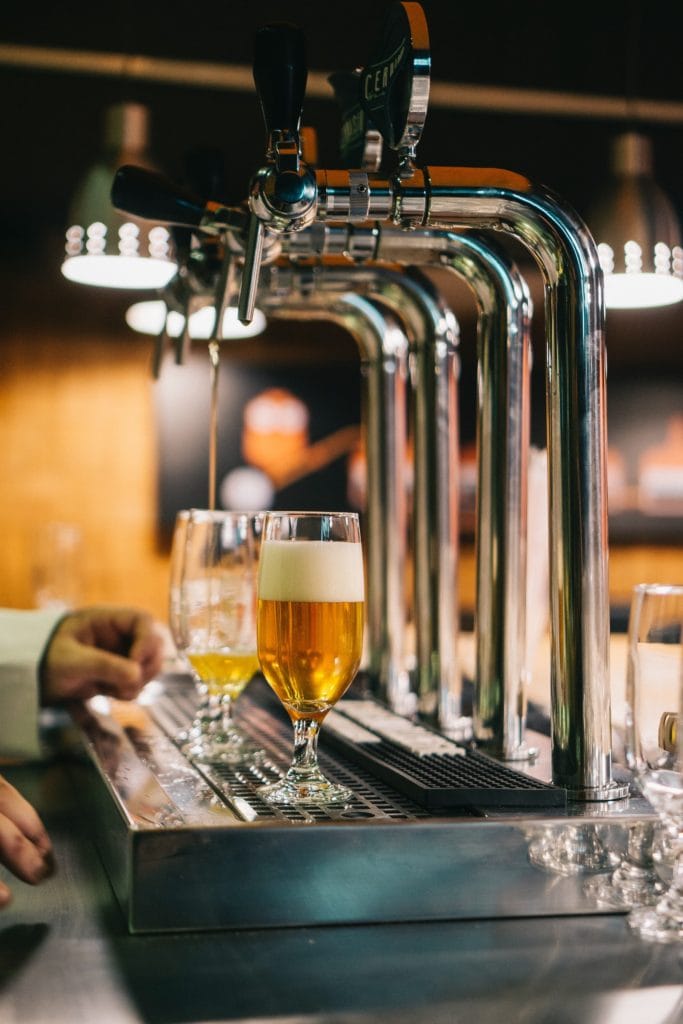Germans can be funny. By that, we mean quirky. At least sometimes. Here we’ve listed a few situations that you might handle differently than most Germans would. But hey, you never stop learning… Here’s what you need to know about German etiquette.
Tipping
In restaurants, Germans tip around 10% of the total bill. In cafes or in cabs, they’ll just round up to the next Euro or two. Customers who give more stand out as tourists, but are sure to get more love. So now you have to make up your own mind: Cash or love?
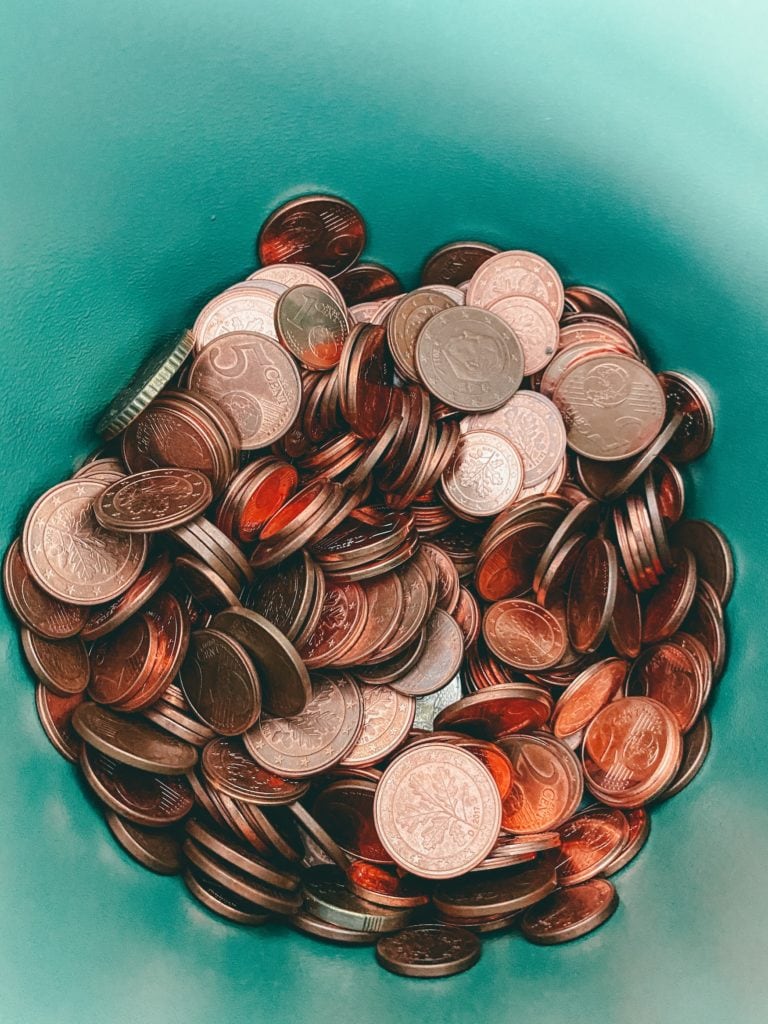
Titles
The older generation of Germans still prefer to be addressed formally by their surnames; as “Herr“ or “Frau“. Wie geht es Ihnen heute, Frau Müller? How are you today, Mrs. Mueller? Under no circumstances should you, at a first meeting, address an older person simply by their first name.
But it can be even more complicated in Austria. Although the use of aristocratic titles (like Count or Duke) has been banned since the foundation of the republic in 1919, Austrians love to use academic titles in front of their names. Don’t be surprised to hear “Frau Doktor“ for someone with a doctorate, or perhaps “Frau Ingenieurin“ for a certified engineer, or even “Herr Magister“, for someone with a masters degree.
Birthday
Everywhere else in the world, it seems to be standard practice to give the birthday boy or girl a present, a cake or some kind of treat on their special day. But if you work in a German company, one thing is certain: Don’t expect any flowers. On your birthday, it’s you who will have to dip into your pockets, and invite your colleagues to coffee and cake or a round of drinks.
Punctuality
German punctuality is a global stereotype, right? Well this time, it’s pretty much correct. In Germany, most people are punctual; rather too early than too late. Within reason, of course. Don’t turn up 30 minutes early to dinner. Most Germans tend to be fairly straight-talking too. Small talk is not a German virtue, so get to the point.
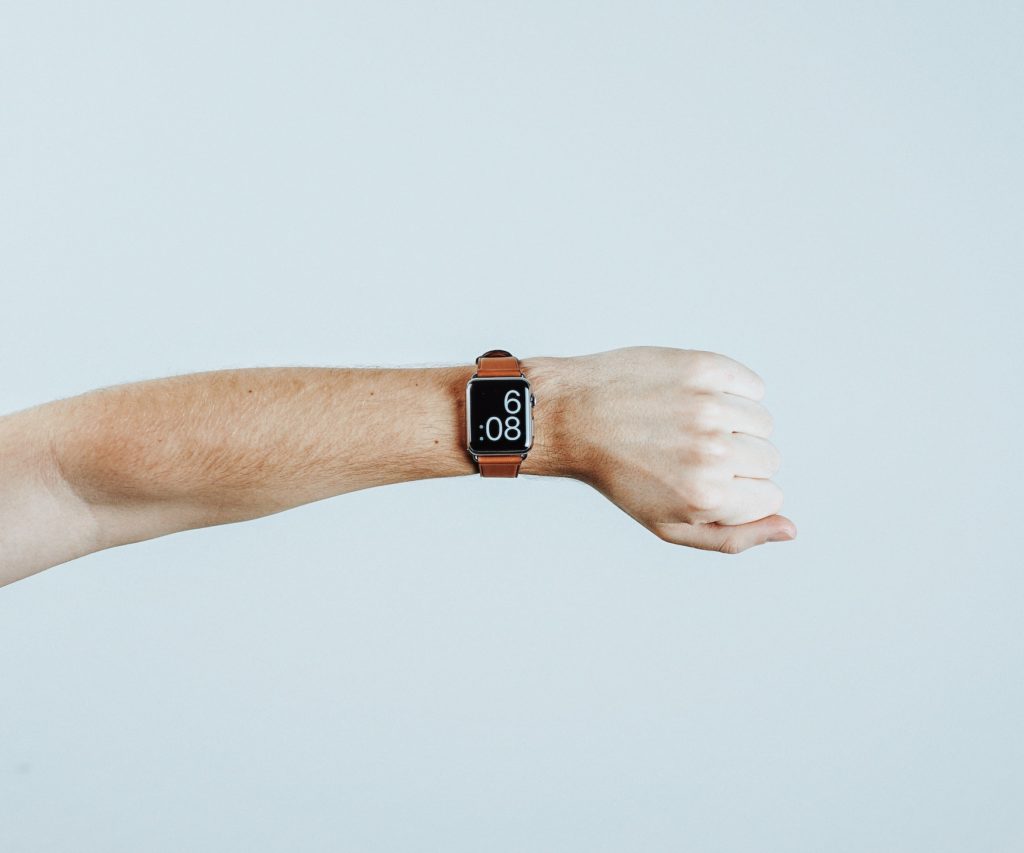
Smoking
In Germany, smoking is also not allowed in restaurants or bars, but is ok on the street. At train stations and airports there are designated smoking areas. Smoking outside of these areas will get you at best some very withering looks, and at worst, will cost you a fine. But one thing is a no-go for all smokers: Never light a cigarette on a candle. A common superstition says doing so kills a sailor.

Bathrooms
Public toilets aren’t usually free in Germany. You should have at least 50 cents in your pocket, just in case. At rest stations on the Autobahn, in shopping malls or in train stations, a trip to spend a penny might cost 70 cents or a Euro. What’s a little unusual for visitors is that this cost is sometimes “refunded“ in the form of a shopping voucher, that can be put towards the cost of a coffee or something similar. Ah, and do NOT expect contactless payment. In a lot of Germany, cash is still very much king.
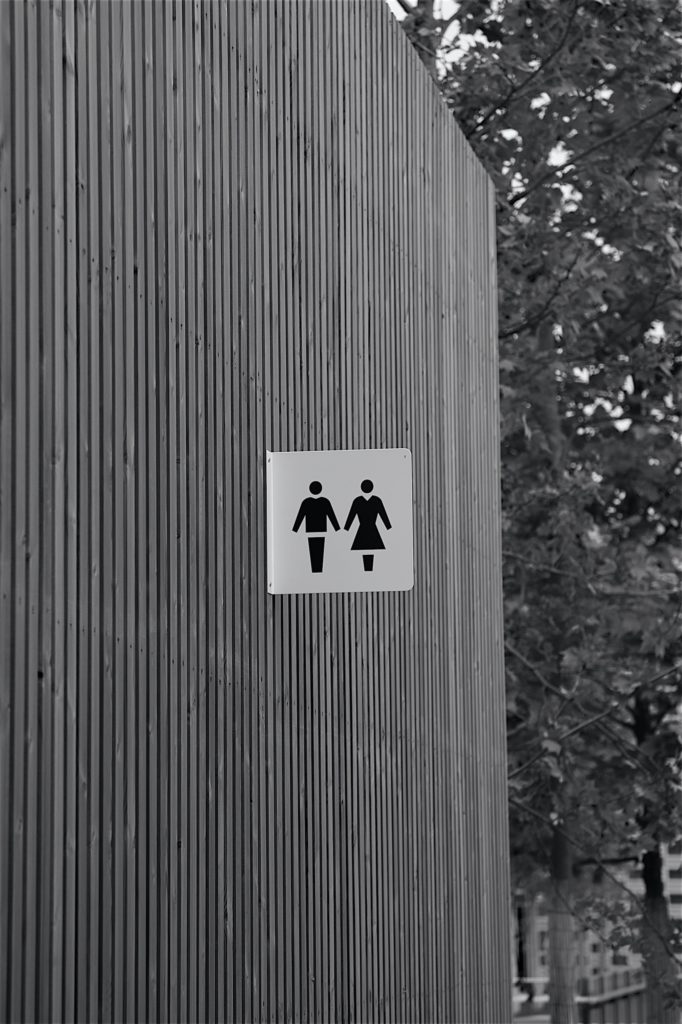
Jackets
Men, if you’re lucky enough to be invited to attend a German wedding, it’s important to keep a close eye on the groom. Male guests at a wedding tend to take their fashion cues from the groom; only when the host loosens up his tie or takes of his jacket, may his guests do the same. But exceptions of course confirm the rule.
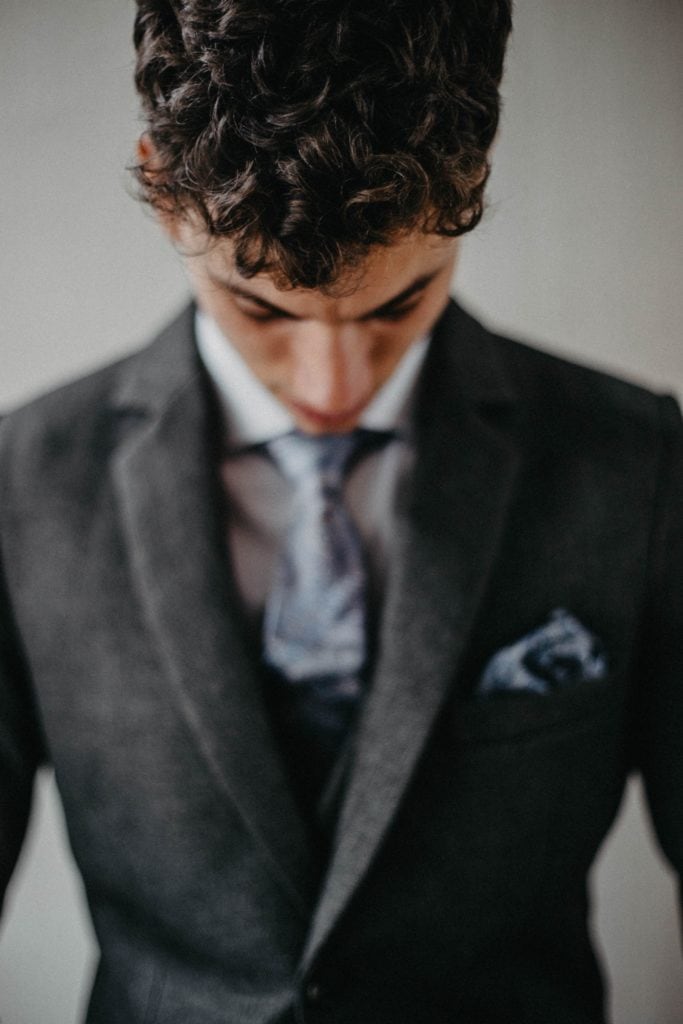
Alcohol
If you visit a local German bar, try ordering a “Herrengedeck“. You’ll be served a beer and a schnapps – normally a pilsner and a “Korn“, which is a clear, mild grain spirit. Although the consumption of alcohol per capita has been decreasing year on year, it’s fair to say that most Germans like a drink.
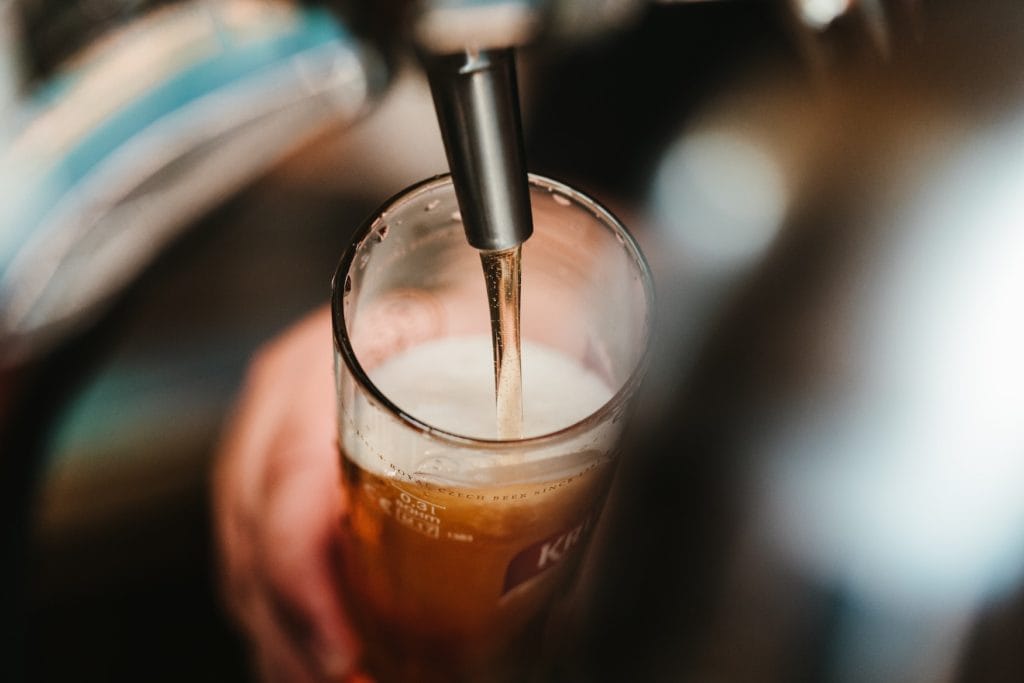
And the laws allowing for that might surprise some visitors. Beer and wine, for example, can be consumed in a bar or cafe by customers aged 16 and above, rather than 18 or 21 years old, as is standard in many other countries.
But no matter where you are, even in a brewery, if you’d prefer something non-alcoholic, just order it. No-one will mind. For a typically German soft-drink, try ordering a “Spezi“ or a “Mezzo Mix“. It’s a blend of cola and orange soda, and tastes better than it sounds!
Garbage
The disposal of rubbish in Germany should be a subject of academic study. First things first: It’s important to separate waste. Germans take a lot of pride in that. One bin for paper, one bin for recyclables, one bin for organic waste (like food scraps or vegetable peelings), one bin for the rest.
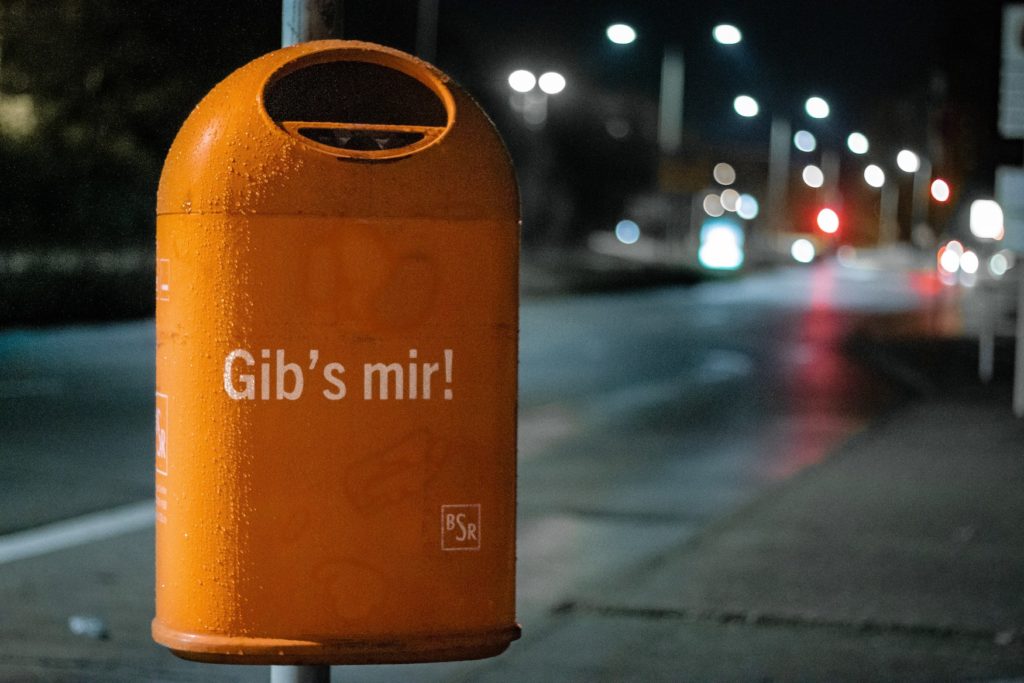
Then the Germans dispose of their old batteries separately. And their old light bulbs too. And it’s crucial to distinguish between different drinks bottles. There are “Mehrweg“ bottles (which are bottles that are cleaned and reused) and there are “Einweg“ bottles (which are mostly plastic bottles that are only used once and can be destroyed or recycled). Normally, there is a deposit on both. Sometimes it’s eight cents, sometimes 15 and sometimes 25. But not always. Most supermarkets have an automatic machine where you can bring your returnable bottles, and collect a voucher for your deposit.
The rest of your glass jars and bottles can be brought to the recycling centre, where you may dipose of them according to their colour: clear, brown or green. And what if you have a blue glass bottle? Put some flowers in it and turn it into a vase.
Toasting
Clinking glasses and saying a short toast before drinking is common in Germany. But there is something very important to remember… ALWAYS, and we mean ALWAYS, look the person you are clinking glasses with directly in the eye. According to German superstition, a failure to adhere to this rule will be punished with seven years of bad sex! And you never cross your arms when talking with someone. There’s no punishment for that, but it’s considered poor manners.
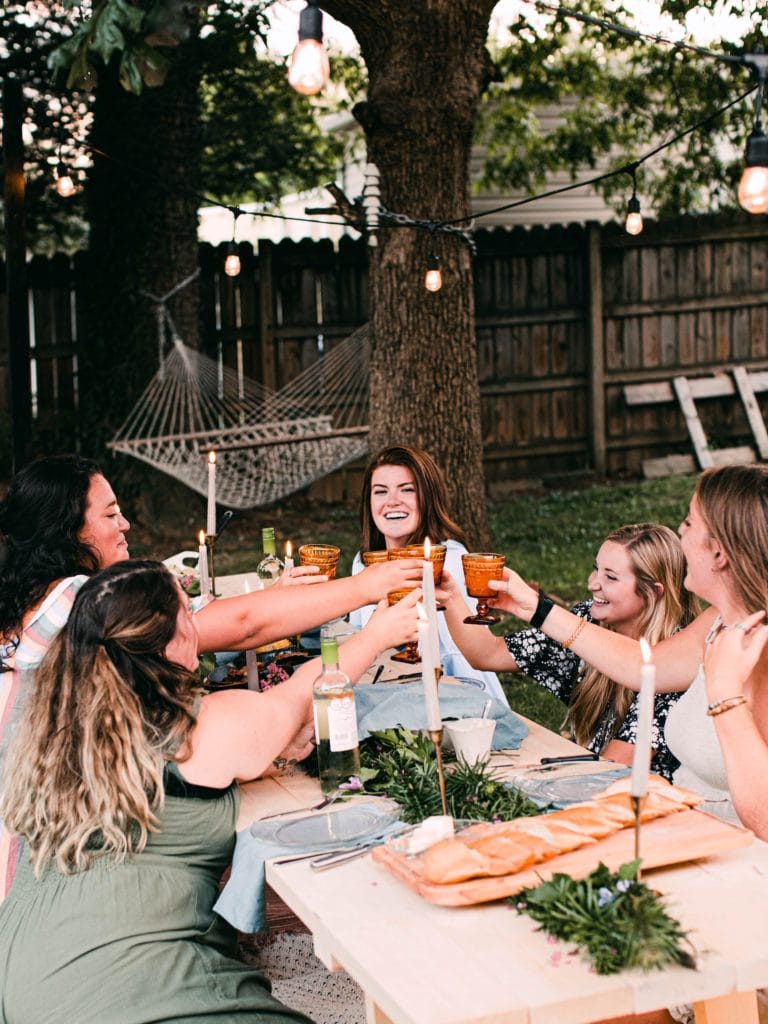
Knife and Fork
If you’re eating in a restaurant or at a dinner party and need to leave the table briefly or just need a little break, you can show that you haven’t yet finished eating by leaving your knife and fork crossed on your plate. Lay the tines of the fork across the blade of the knife. If you have finished, however, and want to have your plate cleared or you want to indicate that you don’t want to eat any more, then place your knife parallel to your fork on the plate, at the five o’clock position. That way the waiter or your host will know you’re finished.

Water
Unlike in many other countries, there is no such thing as free water in German restaurants. If you order water, you’ll normally get bottled mineral water. If you want tap water, you’ll have to specifically ask for it, and there will likely be a service charge on it. As tap water is far more environmentally friendly than the bottled kind, some restaurants are changing this behavior though. But don’t expect free ice. Ever.
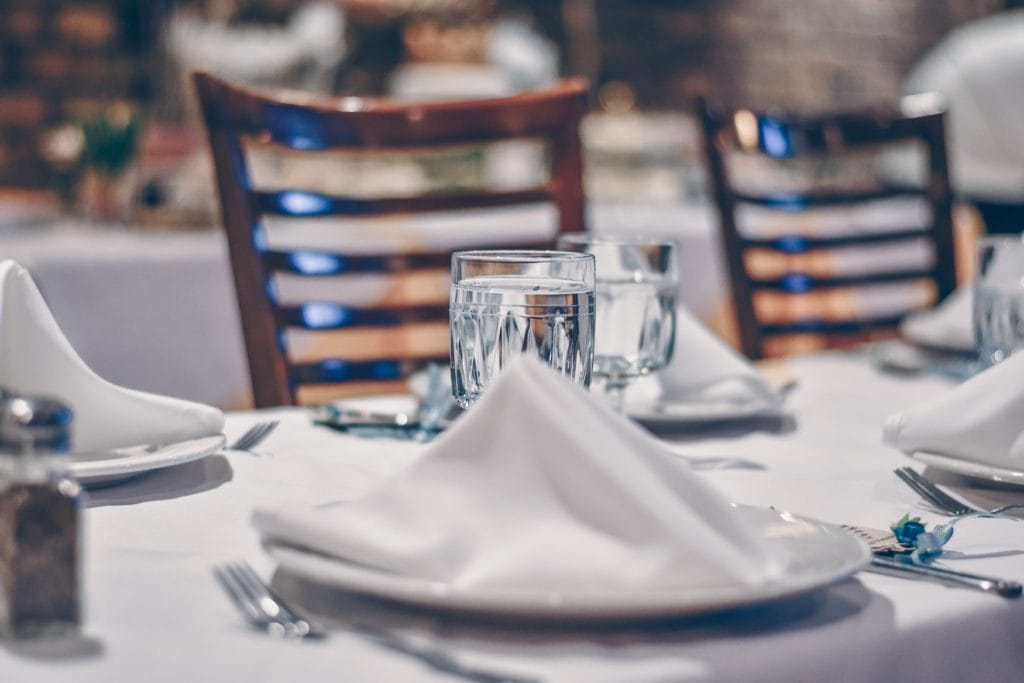
Visits
If you are invited to someone’s home in Germany, there are only two small things you need to keep in mind. Firstly, be on time and secondly, bring a small gift for your host. A bottle of wine, some flowers or a small box of chocolates is always fine. The more personal the better.

Dinner
Table manners are generally important in Germany. They show respect for your host and for those dining with you. Sit up straight and keep your elbows off the table. Be sure to use both your knife and fork while eating, not just your fork. When eating soup with a spoon, bring your spoon up to your mouth. Don’t slouch over your plate. It’s considered sloppy behavior.

In Germany, when eating, most people like to talk about the food they’re enjoying, so drop in a positive comment. If you like what you’ve been served, it’s perfectly ok to ask for another portion. Indeed, it’ll be seen as a compliment. If you’ve brought wine or dessert, and there’s some left after the meal, it stays with your host. Don’t be tempted to take it with you. As we say in Germany, a gift is a gift.





